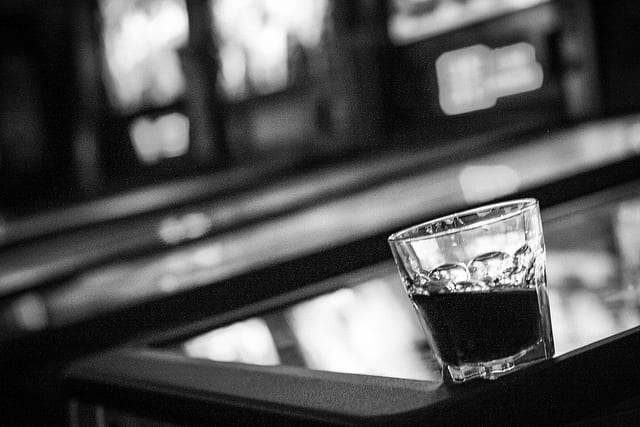
How much is your life worth?
Mine’s worth a little under $500,000.
At least that’s my best approximation at how much the life-saving chemotherapy and radiation therapy cost private insurance and Medicaid when I was diagnosed with a rare bone cancer in my right shoulder three years ago.
In the eight months of treatment that followed, I dealt with the isolation, loss of independence and physical pain by viewing this school as the light at the end of the tunnel. Sure, things sucked now, but everything would be perfect once I stepped back on the hallowed campus of St. Olaf College. There have been few moments in my life more thrilling than sending in my deposit to attend the 15-16 school year.
But the transition back to campus had some pretty significant snags. For one, I felt very weird about drinking. I told myself it was because I still had liver damage from chemotherapy, which was true … I wasn’t supposed to take Tylenol, much less be swigging from a bottle of Smirnoff. But I think there was a bigger thing that made me turn down a second drink: absolutely no part of me yearned to be out of control. I had blacked out and lost my memory countless times due to the potent anti-nausea medication. I had vomited endlessly when my body protested against the poison that was saving its life. I didn’t want a wild and free life. I wanted a tame and protected life.
I didn’t really feel the need to be self-destructive when my self had already tried to destruct. Doing fun and reckless things that flirt with mortality didn’t have the same effect when I had already encountered my mortality up close and personal, and was achingly aware of what it meant.
“Kill me please” and “I just want to die” jokes make me uncomfortable. I know it’s all fun and games and part of a specific internet-culture, meme-centric sense of humor, but all I really want to say “That’s nice. But I just spent most of a year and $500,000 trying not to die, and I still might, so maybe we could just treasure our lives unironically?”
But that’s not a lot of fun at parties, and I want to be fun, so I usually just laugh.
I know that many students here are dealing with issues of unreliable bodies and mortality, many in a more pressing day-to-day manner than I am. I’m in remission, and I have almost three more years of scans before I’m considered cured, but the most pressing danger period is over. That’s not necessarily true for many Oles here with chronic illnesses and disabilities, both physical and mental. There are many, many students who have to figure out how to navigate the tension between a cultural attitude of irreverent invincibility and the actual pressing knowledge that their bodies are definitely not invincible.
People have told me I have a truer perspective: that I should be trying to convince people my age to be more grateful or careful or smarter about their lives and bodies. That may be true, but sometimes I feel anger at my new perspective. I don’t want the ability to relate to my peers to be another thing cancer has taken away.
And it’s not like I’m some born-again health guru: I don’t know why I feel uncomfortable getting blackout drunk, but I’m fine with doubling up on caf desserts. Why I find smoking tobacco horrifying, but I also am horrifically unmotivated to exercise.
All I know is when I encounter the vibrant, strong, reckless, carefree, youthful attitudes around me, there will always be a part of me that wants to join in. And another part that knows that I can’t.

